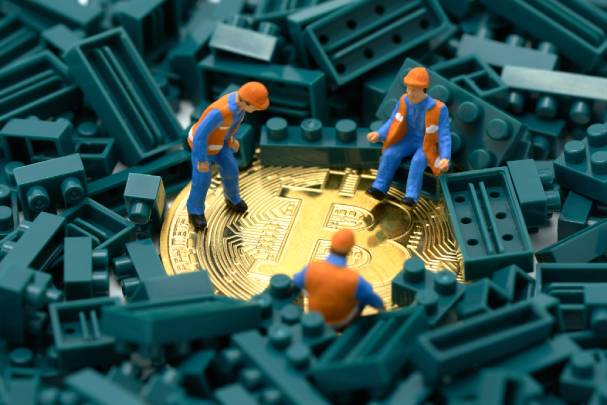"Blockchain and Smart Contracts: A Game-Changer for Construction Professionals"

In the construction industry, we face countless challenges—delayed payments, disputes over contracts, and endless paperwork. What if there was a way to solve some of these problems using technology? Enter blockchain and smart contracts, two buzzwords that might sound complicated but are simpler than you think. Let’s explore what they mean and how they can make life easier for construction professionals.
What Is Blockchain?
Think of blockchain as a digital version of a shared notebook. Imagine everyone on a project team—contractors, subcontractors, suppliers—has access to this notebook. Every time someone adds something (like a transaction or milestone update), it gets recorded permanently, and everyone else sees the update. Once written, it cannot be erased or altered. This ensures transparency and trust.
- Example 1: Material Deliveries
A supplier delivers 10,000 bricks to your site. Instead of manually signing a delivery note, the delivery is recorded digitally in the blockchain. Now, there’s a permanent, tamper-proof record of when and how much was delivered. The contractor, project manager, and client can all verify this instantly. - Example 2: Equipment Tracking
Imagine your company rents heavy machinery like cranes or excavators. With blockchain, you can track exactly when the machine was delivered, how long it was used, and when it’s due for maintenance. Everyone has access to the same information, eliminating confusion or disputes.
What Are Smart Contracts?
Now, let’s add some automation. A smart contract is like a vending machine. You insert money (input), press a button, and the machine delivers your snack (output)—no middleman needed. In construction, smart contracts act as automated agreements that execute themselves when certain conditions are met.
- Example 3: Automated Payments
A subcontractor finishes laying the concrete foundation. Instead of waiting weeks for payment, the smart contract automatically releases funds once the work is inspected and approved by the project manager. This reduces delays and ensures everyone is paid on time. - Example 4: Subcontractor Management
Let’s say you hire multiple subcontractors for a project. A smart contract can automate payments for each subcontractor based on milestones. For instance, the electrician gets paid once the wiring is complete, and the plumber gets paid when the piping is installed. No more chasing invoices or manual approvals.

How Can Blockchain Help Construction?
Here are some simple ways blockchain and smart contracts can benefit construction professionals:
1. Faster Payments
Waiting for payments can be frustrating. Blockchain eliminates manual approvals by automating payments through smart contracts.
- Example 5: Progress Payments
A large infrastructure project requires multiple progress payments. Instead of manually submitting invoices, blockchain ensures that payment is released automatically once milestones like “50% excavation completed” are met and verified by both parties.
2. Clear Accountability
Miscommunication or missing documents often leads to disputes. Blockchain ensures everyone works from the same, verified data.
- Example 6: Dispute Resolution
A contractor claims they delivered additional materials, but the client disagrees. The blockchain ledger shows a verified record of all deliveries, providing clear evidence and resolving the dispute quickly.
3. Tracking Materials
Ever wonder if your materials meet the required standards? Blockchain can track materials from their origin to your site.
- Example 7: Concrete Quality
Your project requires high-strength concrete. Using blockchain, you can trace the concrete’s production batch, quality certification, and delivery record, ensuring it meets specifications. - Example 8: Sustainable Sourcing
If your project requires sustainably sourced timber, blockchain can track the timber from the forest to the construction site, verifying its origin and compliance with environmental standards.
4. Enhancing Collaboration
Blockchain allows all parties to access the same data in real-time, improving coordination and decision-making.
- Example 9: BIM Integration
Imagine combining blockchain with Building Information Modelling (BIM). As teams update the BIM model with progress data, blockchain stores a secure record of every change. This ensures everyone works from the latest version of the model. - Example 10: Real-Time Updates
During a large infrastructure project, blockchain allows all stakeholders—contractors, suppliers, and owners—to access real-time updates on progress, budgets, and issues. This transparency reduces delays caused by communication gaps.
5. Reducing Fraud
Tampering with documents or payment records is a serious issue. Blockchain’s tamper-proof ledger makes fraud nearly impossible.
- Example 11: Subcontractor Payment Records
A subcontractor claims they weren’t paid for certain tasks. Blockchain provides a secure record showing exactly when and how much they were paid, preventing fraudulent claims. - Example 12: Counterfeit Materials
Suppliers sometimes deliver counterfeit materials to cut costs. Blockchain tracks materials’ origins, making it easy to detect and reject counterfeit goods.
Why Should You Care?
Construction professionals deal with tight schedules and budgets. Blockchain simplifies processes, saving time and money. While the technology is still evolving, its potential to transform the construction industry is immense. Some companies have already started adopting blockchain for tasks like managing supply chains and tracking payments.

Challenges to Consider
Of course, blockchain isn’t perfect. Setting it up requires expertise, and not everyone in the construction industry is ready for such a change. However, as digital technologies become more common, adopting blockchain can set your business apart.
A Real-Life Example: The Smart Project Payment
Let’s bring it all together with a real-world example:
- A subcontractor installs plumbing on the 5th floor of a commercial building.
- The project manager inspects the work and approves it via a mobile app.
- The smart contract on the blockchain automatically releases the payment to the subcontractor’s account within minutes.
This system ensures faster payments, reduces paperwork, and eliminates the potential for disputes.
The Future of Blockchain in Construction
The construction industry is slowly but surely adopting blockchain. As more professionals see its benefits, we’ll likely see it integrated into everyday processes, from managing contracts to tracking project progress.
At TC Consultancy, we’re committed to staying ahead of these trends. By exploring technologies like blockchain, we’re ensuring that we provide our clients with innovative and efficient solutions. If you’d like to learn more about how blockchain can improve your projects or how we can help, get in touch today.
This document is intended solely for the informational purposes of those concerned and should not be relied upon as expert advice in any circumstance without consulting an expert professional. Reproduction or translation of this information is not permitted without explicit written consent from www.tccons.ae.
For additional details, please reach out to info@tccons.ae

